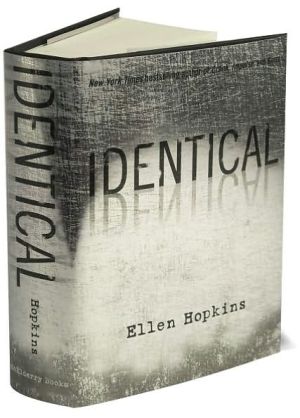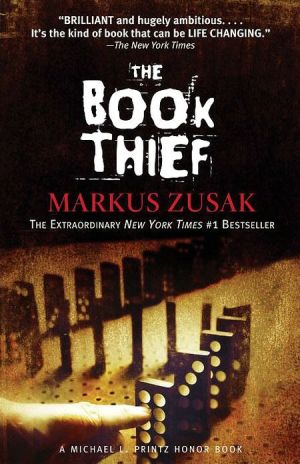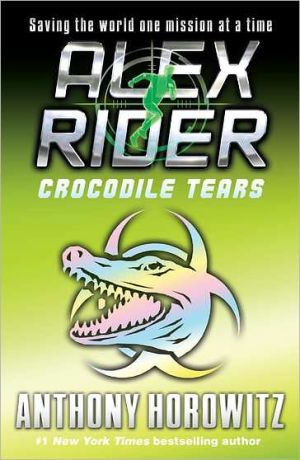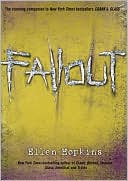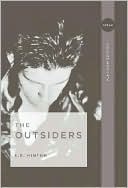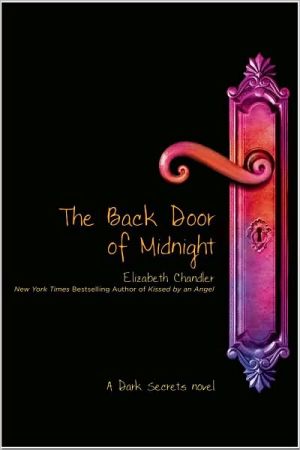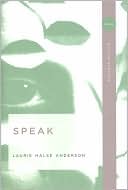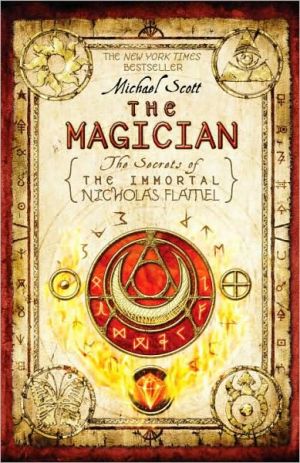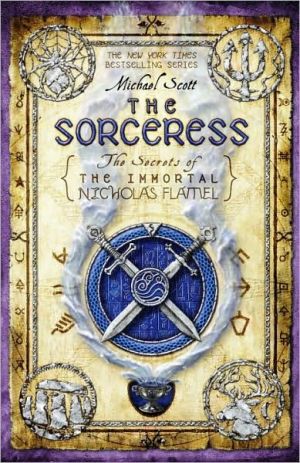Identical
Do twins begin in the womb?\ Or in a better place?\ Kaeleigh and Raeanne are identical down to the dimple. As daughters of a district-court judge father and a politician mother, they are an all-American family -- on the surface. Behind the facade each sister has her own dark secret, and that's where their differences begin.\ For Kaeleigh, she's the misplaced focus of Daddy's love, intended for a mother whose presence on the campaign trail means absence at home. All that Raeanne sees is Daddy...
Search in google:
"Perfect on the outside, but behind the Normal Rockwell facades, each holds its secrets. Dark, untellable. Practically unbelievable." — IDENTICAL Kaeleigh and Raeanne are 16-year-old identical twins, the daughters of a district court judge father and politician mother running for US Congress. Everything on the surface seems fine, but underneath run very deep and damaging secrets. What really happened when the girls were 7 years old in that car accident that Daddy caused? And why is Mom never home, always running far away to pursue some new dream? Raeanne goes after painkillers, drugs, alcohol, and sex to dull her pain and anger. Kaeleigh always tries so hard to be the good girl — her father's perfect little flower. But when the girls were 9, Daddy started to turn to his beloved Kaeleigh in ways a father never should and has been sexually abusing her for years. For Raeanne, she needs to numb the pain of not being Daddy's favorite; for Kaeleigh, she wants to do everything she can to feel something normal, even if it means cutting herself and vomiting after every binge. How Kaeleigh and Raeanne figure out just what it means to be whole again when their entire world has been torn to shreads is the guts and heart of this powerful, disturbing, and utterly remarkable book.Publishers WeeklyUsing free verse as her vehicle, Hopkins (Crank, Glass) takes readers on a harrowing ride into the psyches of 16-year-old identical twins Kaeleigh and Raeanne, both of whom are racing toward self-destruction. The girls' family appears picture-perfect. Their father is a prominent judge, their mother is running for Congress, and both girls do well in school. But ever since an accident, "Mom doesn't love anyone./ She is marble. Beautiful./ Frigid. Easily stained/ by her family. What's left/ of us, anyway. We are corpses." Raeanne seeks escape in sex and drugs; Kaileigh binges and cuts herself. Brief, gutsy confessions reveal a history of sexual abuse and emotional neglect, and it's not clear that both girls will survive it. Hopkins's verse is not only lean and sinuous, it also demonstrates a mastery of technique. Strategically placed concrete verse includes a poem about revenge shaped like a double-edged sword; in another, about jealousy, the lines form one heart reflecting another, until a rupture breaks the symmetry at the bottom. Often, the twins' entries mirror each other, on facing pages: although used differently in the two poems, the same key words are set off in corresponding stanzas ("think./ How/ different/ life./ could be" reads one set of key words). Those for whom Uncle Vampire means something will anticipate the still-breathless climax; all others, including most of the target audience, will be shocked. Ages 14-up. (Aug.)Copyright © Reed Business Information, a division of Reed Elsevier Inc. All rights reserved.
Raeanne\ \ Mirror, MirrorWhen I look into a\ mirror, it is her face I see.\ Her right is my left, double\ moles, dimple and all.\ My right is her left,\ unblemished.\ \ We are exact opposites,\ Kaeleigh and me.\ Mirror-image identical\ twins. One egg, one sperm,\ one zygote, divided,\ sharing one complete\ set of genetic markers.\ \ On the outside\ we are the same. But not\ inside. I think\ she is the egg, so\ much like our mother\ it makes me want to scream.\ \ Cold.\ Controlled. \ \ That makes me the sperm,\ I guess. I take completely\ after our father.\ All Daddy, that's me.\ \ Codependent.\ Cowardly.\ \ Good, bad. Left, right.\ Kaeleigh and Raeanne.\ One egg, one sperm.\ One being, split in two.\ \ And how many souls?\ \ Interesting Question \ \ Don't you think?\ I mean, if the Supreme\ Being inserts a single soul\ at the moment of conception,\ does that essence divide\ itself? Does each half then\ strive to become whole\ again, like a starfish\ or an earthworm?\ \ Or might the soul clone itself,\ create a perfect imitation\ of something yet to be\ defined? In this way,\ can a reflection be altered?\ \ Or does the Maker,\ in fact, choose\ to place two\ separate souls within\ a single cell, to spark\ the skirmish that ultimately\ causes such an unlikely rift?\ \ Do twins begin in the womb?\ \ Or in a better place?\ \ One Soul or Two\ \ We live in a smug California\ valley. Rolling ranch land, surrounded\ by shrugs of oak-jeweled hills.\ Green for two brilliant\ months sometime around spring,\ burnt-toast brown the rest of the year.\ \ Just over an unremarkable mountain\ stretches the endless Pacific.\ Mornings here come wrapped\ in droops of gray mist.\ Most days it burns off by noon.\ Other days it just hangs on\ and on. Smothers like a wet blanket.\ \ Three towns triangulate\ the valley, three corners, each\ with a unique flavor:\ weathered Old West;\ antiques and wine tasting;\ just-off-the-freeway boring.\ \ Smack in the center is the town\ where we live, and it is the most\ unique of all, with its windmills\ and cobbled sidewalks, designed\ to carry tourists to Denmark.\ Denmark, California-style.\ \ The houses line smooth black\ streets, prim rows\ of postcard-pretty dwellings,\ coiffed and manicured from curb\ to chimney. Like Kaeleigh\ and me, they're perfect\ on the outside. But behind\ the Norman Rockwell facades,\ each holds its secrets.\ \ Like Kaeleigh's and mine,\ some are dark. Untellable.\ Practically unbelievable.
\ Publishers WeeklyUsing free verse as her vehicle, Hopkins (Crank, Glass) takes readers on a harrowing ride into the psyches of 16-year-old identical twins Kaeleigh and Raeanne, both of whom are racing toward self-destruction. The girls' family appears picture-perfect. Their father is a prominent judge, their mother is running for Congress, and both girls do well in school. But ever since an accident, "Mom doesn't love anyone./ She is marble. Beautiful./ Frigid. Easily stained/ by her family. What's left/ of us, anyway. We are corpses." Raeanne seeks escape in sex and drugs; Kaileigh binges and cuts herself. Brief, gutsy confessions reveal a history of sexual abuse and emotional neglect, and it's not clear that both girls will survive it. Hopkins's verse is not only lean and sinuous, it also demonstrates a mastery of technique. Strategically placed concrete verse includes a poem about revenge shaped like a double-edged sword; in another, about jealousy, the lines form one heart reflecting another, until a rupture breaks the symmetry at the bottom. Often, the twins' entries mirror each other, on facing pages: although used differently in the two poems, the same key words are set off in corresponding stanzas ("think./ How/ different/ life./ could be" reads one set of key words). Those for whom Uncle Vampire means something will anticipate the still-breathless climax; all others, including most of the target audience, will be shocked. Ages 14-up. (Aug.)\ Copyright © Reed Business Information, a division of Reed Elsevier Inc. All rights reserved.\ \ \ \ \ VOYA\ - Barbara Johnston\ This disturbing story in blank verse alternates between the voices of identical teenage twins, Raeanne and Kaeleigh. With an absentee mother obsessed with her political career and an alcoholic father who sexually abuses Kaeleigh, their lives are only superficially picture perfect. Raeanne escapes through promiscuous sex, drugs, and alcohol while Kaeleigh adds binging, purging, and cutting. Boyfriend Ian offers love, but Kaeleigh is too damaged to reciprocate. Her overdose precipitates the revelation that Raeanne had actually died eight years ago in a car accident caused by her father's drunkenness. Its trauma and the hideous incestuous relationship with her father have led to Kaleigh's shattered identity. The father is removed, his mother steps up, and Kaeleigh enters counseling to begin healing. Through images that sting like hot tar on raw flesh, readers feel the anguish of a family's brokenness and the repulsive touch of incest. When her father uses her, Kaeleigh says "I don't cry out but I do cry a bucket of silent tears" as her father slithers away. Ian's tenderness and friend Greta's concern provide some respite, but mostly there is just one painful scene after another. Some show hard-partying teens and sexual interactions. The poetry is powerful and sometimes cleverly displayed visually as in the heart-shaped poems about love. The denouement provides insight into dissociative identity disorder but no miraculous healing, and the content justifies graphic images and F-bombs. Almost impossible to put down, this book underscores the sordidness that can soil young lives. Reviewer: Barbara Johnston\ \ \ Children's Literature\ - Phyllis J. Perry\ Told in non-rhyming verse, the narration of this story alternates between the voices of identical twins, Kaeleigh and Raeanne, who, on the surface, live what appears to be a good and privileged life in California. They are the daughters of a father who is a district court judge and a mother who is a politician. The girls recall a time not long ago when their parents appeared to be in love with each other, but that was before an awful auto accident that changed their lives. After the accident, their mother doesn't seem to have the capacity to love anyone. She is constantly on the road electioneering, coming home, it seems, only for photo opportunities to enhance her political campaign. The father turns for love to his daughter, Kaeleigh, while Raeanne feels rejected and shut out. Raeanne begins making choices that involve drugs, alcohol and sex with multiple partners. Kaeleigh is drawn to a young man, Ian, but has difficulty in forming relationships with someone her own age. The twins keep a dark secret. The book is challenging both in its successful experimental format and in its subject matter which contains graphic examples of incest, sex, addiction, bulimia, cutting, S&M and alcohol abuse. This story of a fractured family is compelling, sharp and never sugar-coated. Definitely not for the young teen, it requires a mature audience. Hopkins has written other novels including Crack, which is also written in free verse. Reviewer: Phyllis J. Perry\ \ \ \ \ School Library JournalGr 9 Up\ Identical teen twins Kaeleigh and Raeanne share a picture-perfect California life that is rank with dark, dangerous secrets under its surface. Their mother, who is running for Congress, leaves them at home with their father, a district court judge who is addicted to liquor and OxyContin. Daddy regularly molests Kaeleigh, using her as a stand-in for his absentee wife, and controls every aspect of her life. Raeanne sees every detail and reacts to her father's favoritism by acting out sexually and getting high on pot whenever possible. Written in free verse from alternating viewpoints, Identical tells the twins' story in intimate and often-graphic detail. Hopkins packs in multiple issues including eating disorders, drug abuse, date rape, alcoholism, sexual abuse, and self-mutilation as she examines a family that "puts the dys in dysfunction." The tension builds slowly and subtly, erupting in a shattering climax of psychological disintegration and breakthrough that reveals the truth about the twins and their father's own childhood secrets. Gritty and compelling, this is not a comfortable read, but its keen insights make it hard to put down.-Joyce Adams Burner, Hillcrest Library, Prairie Village, KS\ \ \ \ \ \ Kirkus ReviewsHopkins's gift with free verse reaches new heights in this portrait of splintered identical twins. Sexual abuse, a fatal car accident and violent alcoholism have wrecked their family. Mom disappears by running for Congress. Daddy drinks Wild Turkey and pops painkillers-and molests Kaeleigh. Raeanne acts out with bulimia and rough sex, willingly trading sex for drugs. Kaeleigh shuts down, throws up and withdraws from everyone, even steady Ian, her best friend, who's in love with her. Ian offers the first healthy love Kaeleigh's ever known, but too many secrets lurk under her surface. Masterful shards of verse convey the fragmented emotions: Falling for Ian, Kaeleigh feels, "Fire. Ice. Honey. Salt. Eiderdown. / Iron. Every fiber of me twitches / confusion." Some facing pages reveal additional mirror-poems along the gutter, each identical poem holding a very different meaning for each sister. Kaeleigh and Raeanne maintain distinct voices throughout as they wrestle with psychic damage and an astonishing, devastating realization. Sharp and stunning, with a brilliant final page. (Fiction. YA)\ \ \ \ \ Booklist“A powerful interpretation of an emotional story.”\ \ \ \ \ The Trades“Hopkins' word sculpture and verse patterns are just as keen as ever, creating shapes and secret messages. . . One thing is for certain—you won't soon forget this story.”\ —The Trades\ \
